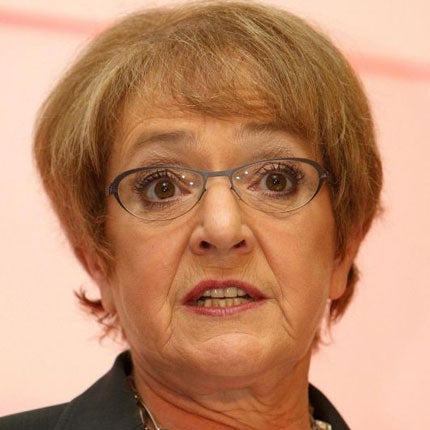Ministers "significantly" underestimated the number of universities which will charge maximum £9,000 tuition fees, a Government spending watchdog has found.
A Public Accounts Select Committee report says it is unclear whether the fees, treble the current maximum, will deter students from applying to study for degrees.
But it warns of "a substantial funding gap" for English universities which may lead to cuts in higher education or need more taxpayers' cash as the Office for Fair Access bids to encourage more students from poor backgrounds to apply for courses.
The report says: "All the indications are that significantly more institutions will charge significantly higher fees than was anticipated by the Department for Business, Innovation and Skills.
"The Office for Fair Access has yet to agree the measures universities will adopt to widen participation where the proposed fees are above the £6,000 level.
"However it is likely that a significant funding gap of hundreds of millions of pounds for the taxpayer will occur. Unless further resources are secured by the Department, this could result in further cuts being made to the Higher Education budget."
Committee chairman, Labour MP Margaret Hodge, also said universities' regulatory body, the Higher Education Funding Council for England, would need beefed-up powers once higher tuition fees are introduced and its role in awarding cash to institutions was cut back.
She said: "Unprecedented change is about to take place in the higher education sector as it moves towards a system in which funding for teaching follows the student.
"The Higher Education Funding Council for England will no longer be able to rely upon its funding role to influence the sector and a new system of regulation will be required.
"At present, more universities intend to charge higher fees than the Department for Business, Education and Skills had expected.
"If the universities' plans to widen participation are approved by the Office for Fair Access, this will leave a substantial funding gap which will either require further cuts in higher education or further resources from the Treasury."
Mrs Hodge added: "It is also unclear whether higher fees will dampen down demand for places.
"This and other risks to the financial health of institutions will have to be monitored by the Funding Council during the transition to the new funding environment."
Mrs Hodge called for ministers to give potential students more information on paying for higher education at various universities so they can choose the course and destination which best suits them.
"Given that students will be required to spend more money on their own higher education, they will have to be able to make an informed choice about value for money offered by different institutions," she said.
"The Department must make sure that students are provided with relevant and reliable information."
Mrs Hodge said the expected funding gap of hundreds of millions of pounds in the short term was unlikely to be covered by the Treasury, leaving the Department to fill it.
This could mean cuts in student numbers, reductions in funding for science teaching or less money going towards measures to widen participation in higher education, she said.
In the longer term, the total debt held by the Student Loans Company was forecast to rise from £24 billion now to £70 billion by 2015/16, when the new system is in place, said Mrs Hodge.
She told the BBC Radio 4 Today programme: "That's a heck of a lot of money. There are bound to be defaults and who picks up the default? You and I, the taxpayer."
Mrs Hodge also raised the prospect of universities failing, and said students should be warned in advance if any are in financial difficulties.
She said: "If demand were to go down from students at home because they don't want to incur the debt, or fewer people do post-graduate courses or fewer foreign students come to the UK, that could mean that some universities risk falling into financial instability.
"At present, the HEFCE has a list of universities at financial risk - there are about 10 of them at the moment - but it doesn't tell the public until that university has been in financial difficulty for three years.
"If you are a student and you are risking your own money to go to a university, I think you have a right to know, because otherwise if a university were to fail, you would have put your money up front, you wouldn't get your education and you wouldn't get your degree.
"I don't think the Government will stand behind a university that falls into financial difficulties. I have never known a university fail, but in the future I don't think the Government would mind if some universities failed.
"So I think in these circumstances it is absolutely right, when you are asking individuals to put up their money, they should know the financial health of the institution they are selecting to attend."
Subscribe to Independent Premium to bookmark this article
Want to bookmark your favourite articles and stories to read or reference later? Start your Independent Premium subscription today.


Join our commenting forum
Join thought-provoking conversations, follow other Independent readers and see their replies